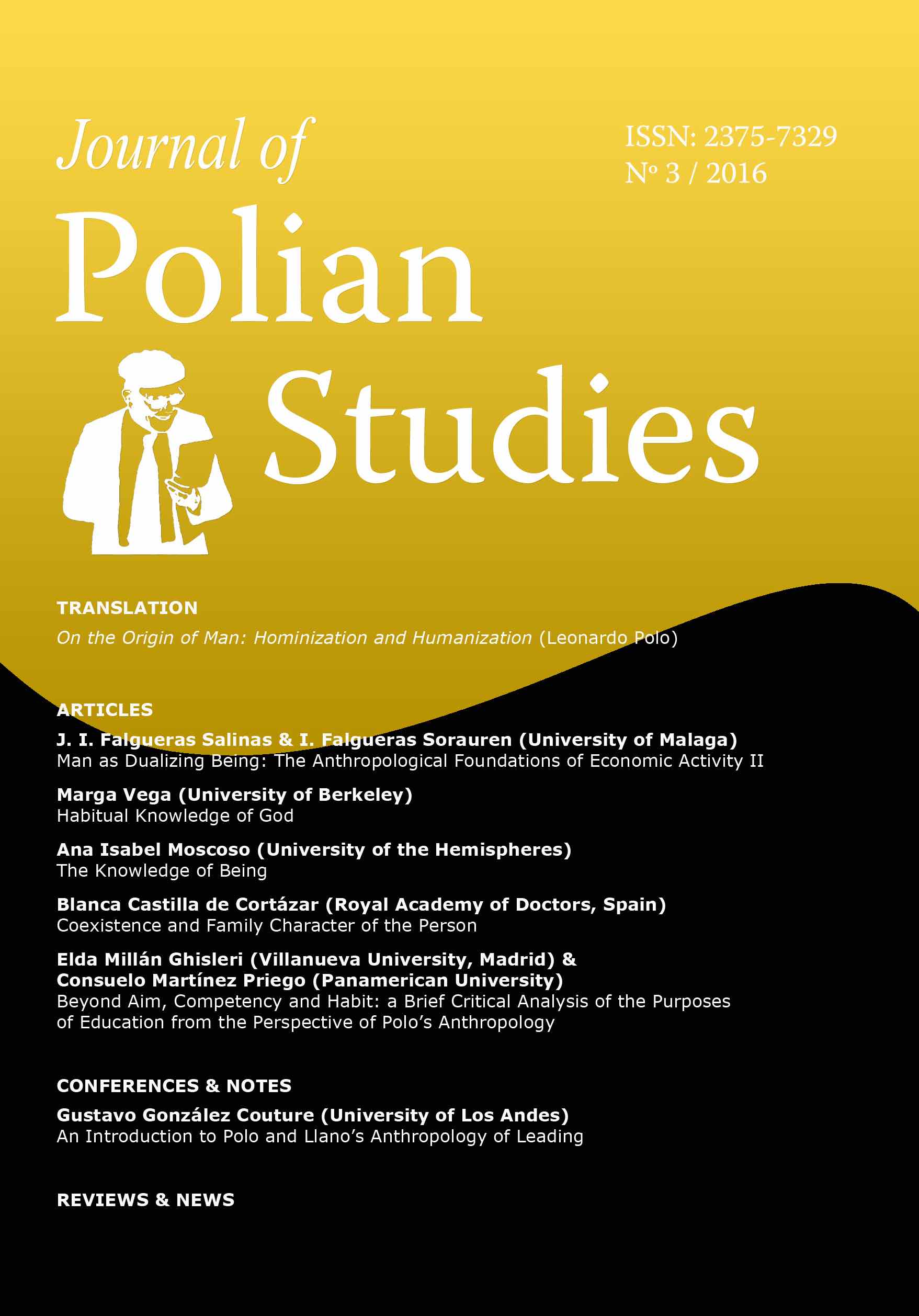Habitual Knowledge of God
Keywords:
intellectual habits, God, knowledge, agent personal intellect, wisdom, co-existenceAbstract
This paper explores Polo's proposal of an anthropological access to God's existence in addition to the traditional metaphysical Five Ways. More specifically, it focus on the role of the intellectual habits, in particular the habit of wisdom and the habit of personal intellect, in acquiring knowledge of God as creator of the person. Habitual knowledge according to Polo is possible because the agent intellect illuminates intelligible contents, may that be the phantasm, to operations of the intellectual faculty, or any other actualization and perfection of the intellect. Through that illumination, the agent intellect communicates freedom to the human nature rendering the former open to unrestricted growth. The anthropological path to God is dependent on the habit of wisdom by which we come to know ourselves, not just in our nature and faculties, but in the source of what makes our nature capable of unrestricted growth and freedom, namely, our personal act of being. It is when we know our personal act of being that we also glance at the Creator of our freedom, not just as a cause of it, but as the kind of Co-existence that brings us into co-existence.


